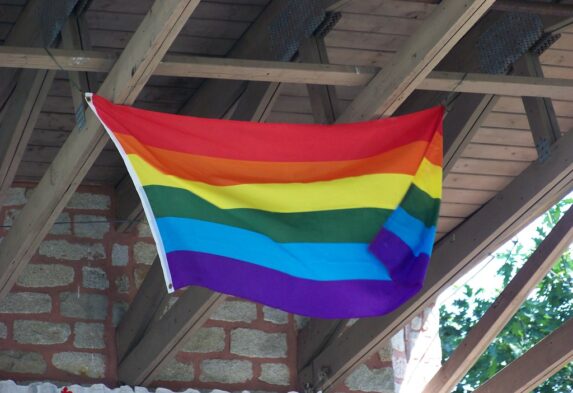Ensuring a Safe and Gender-Sensitive Environment for Women and Transgender Persons in Karnataka’s Judiciary


Introduction
The Government of Karnataka has issued a notification with respect to Gender Sensitization & Sexual Harassment of Women and Transgender Person in the precincts of the Karnataka High Court and District Courts (Prevention, Prohibition and Redressal) Regulations, 2024, which shall come into force on January 24, 2025.
This regulation is to protect women and transgender persons from sexual harassment in judicial spaces. These regulations aim to create a safe and respectful environment in the High Court, District Courts, and related judicial institutions. They are based on the constitutional rights to equality, dignity, and freedom from discrimination, ensuring that legal professionals, staff, and visitors can work without fear of harassment.
These regulations draw from important Supreme Court judgments, such as Vishaka v. State of Rajasthan (1997) and Medha Kotwal Lele v. Union of India (2012), as well as international conventions like CEDAW (Convention on the Elimination of All Forms of Discrimination Against Women). They apply to all women and transgender persons, whether they are employees, lawyers, litigants, or visitors within court premises.
Scope and Definitions
These regulations apply to all courts in Karnataka, including the Karnataka High Court and its benches, District Courts, Family Courts, Special Courts, and Tribunals. They also cover bar rooms, libraries, canteens, parking lots, and other areas within the judicial premises.
The term “sexual harassment” includes physical contact, sexual advances, offensive remarks, display of pornography, stalking, and any form of unwelcome behaviour with a sexual undertone. Both women and transgender persons are covered under these regulations, ensuring that all individuals have equal protection.
An aggrieved woman/ transgender person can be anyone who has experienced sexual harassment within court premises. The respondent is the person accused of misconduct. A volunteer refers to an individual lawyer working without any remuneration basis, for carrying out the objects and purpose of these Regulations.
Preventing Sexual Harassment
The regulations strictly prohibit any form of sexual harassment within the precincts of Karnataka’s courts. Everyone working within or visiting these institutions is expected to act respectfully. No woman or transgender person should face any form of harassment while practicing law, working, or seeking justice.
To ensure prevention, the regulations emphasize gender sensitization programs, workshops, and awareness campaigns. The objective is to educate legal professionals, court staff, and the public about respectful behavior, gender equality, and the consequences of harassment.
The Gender Sensitization & Internal Complaints Committee (GSICC)
To implement these regulations and address complaints, a Gender Sensitization & Internal Complaints Committee (GSICC) has been set up. This committee is responsible for both preventing and addressing sexual harassment in court premises.
The Karnataka High Court GSICC is formed by the Chief Justice, while District Court GSICCs (DCGSICC) are created by the Principal District & Sessions Judge. Each committee consists of judges, senior advocates, NGO representatives, bar association members, and legal service representatives. It ensures that most of its members are women.
The committee’s key role is to frame policies, conduct awareness programs, and handle complaints effectively. It meets at least once every four months to review cases and take necessary action. If a member fails to attend three consecutive meetings, they are removed and replaced.
Filing Complaints and the Inquiry Process
Any woman or transgender person who experiences sexual harassment within court premises can file a complaint in writing to the GSICC or DCGSICC. If the complainant is unable to write due to distress or other reasons, assistance is provided. In cases where the complainant is physically or mentally incapable or has died, their legal heir or a concerned individual can file the complaint on their behalf.
Once a complaint is received, an Internal Sub-Committee is set up to conduct an inquiry. This three-member team includes a majority of women and at least one external expert. The committee records statements from the complainant, the accused, and any witnesses. The inquiry must be completed within 90 days.
After the investigation, the committee submits a report. If the complaint is found to be valid, the GSICC/DCGSICC recommends action against the accused. If the allegations are not proven, the case is dismissed.
Actions and Punishments
If the committee finds the accused guilty, it can recommend various actions, including:
- Issuing a warning (admonition).
- Publicly posting the warning in court premises and on official websites.
- Banning the respondent from contacting the victim.
- Debarring the respondent from entering the court premises for up to one year.
- Recommending disciplinary or criminal action against the respondent.
In serious cases, the committee can ask the Chief Justice or District Judge to take further legal action. The committee’s decision is final and binding, but an appeal can be made within 90 days if the complainant or accused is dissatisfied with the outcome.
Restraint Orders for Protection
During an ongoing inquiry, the complainant can request a restraint order to ensure their safety. This means the accused may be prohibited from communicating with or approaching the complainant. If the accused violates this order, their defence may be struck off, and strict action will be taken.
Powers and Responsibilities of GSICC
The GSICC has powers similar to a civil court. It can summon witnesses, demand documents, and issue directives to ensure justice. If any member of the inquiry committee is found biased or unfair, they can be removed.
The GSICC also has a duty to:
- Ensure a safe work environment.
- Display information about complaint procedures and penalties for harassment.
- Conduct regular awareness and training programs.
- Provide resources for the inquiry process and assist in securing evidence.
These responsibilities help maintain transparency and accountability within the judiciary.
Confidentiality and Protection from Retaliation
All complaints, inquiries, and decisions remain strictly confidential. The identities of the complainant, witnesses, and accused are not disclosed unless the complainant requests it and upon the GSICC/DCGSICC acceding to the said request..
If the accused is found guilty, the committee may publish details about the justice secured, but without revealing the complainant’s identity. This ensures victims feel safe to report harassment.
The regulations also protect committee members from legal action as long as they act in good faith while carrying out their duties.
Funding and Implementation
To implement these regulations effectively, funds are allocated by the Chief Justice and Principal District Judge. These funds are used for:
- Awareness programs and training sessions.
- Developing resources on gender sensitization.
- Supporting the functioning of GSICC and inquiry committees.
The High Court and District Courts are responsible for enforcing these regulations and ensuring compliance.
Relationship with Other Laws
These regulations do not replace existing laws but add an extra layer of protection. A person can still file a criminal case or approach a disciplinary authority like the Bar Council for action against the accused. Courts also retain their power to take action under other relevant laws.
Conclusion
The Gender Sensitization & Sexual Harassment Regulations, 2024, are a significant step towards creating a respectful, safe, and inclusive judicial environment in Karnataka. By preventing, prohibiting, and addressing sexual harassment, these regulations ensure that women and transgender persons can work and seek justice without fear.
The effective implementation of these regulations depends on awareness, training, and active participation from the judiciary, legal professionals, and the public. Together, these efforts will help make Karnataka’s courts a model for gender justice and workplace safety.
For further details write to contact@indialaw.in




